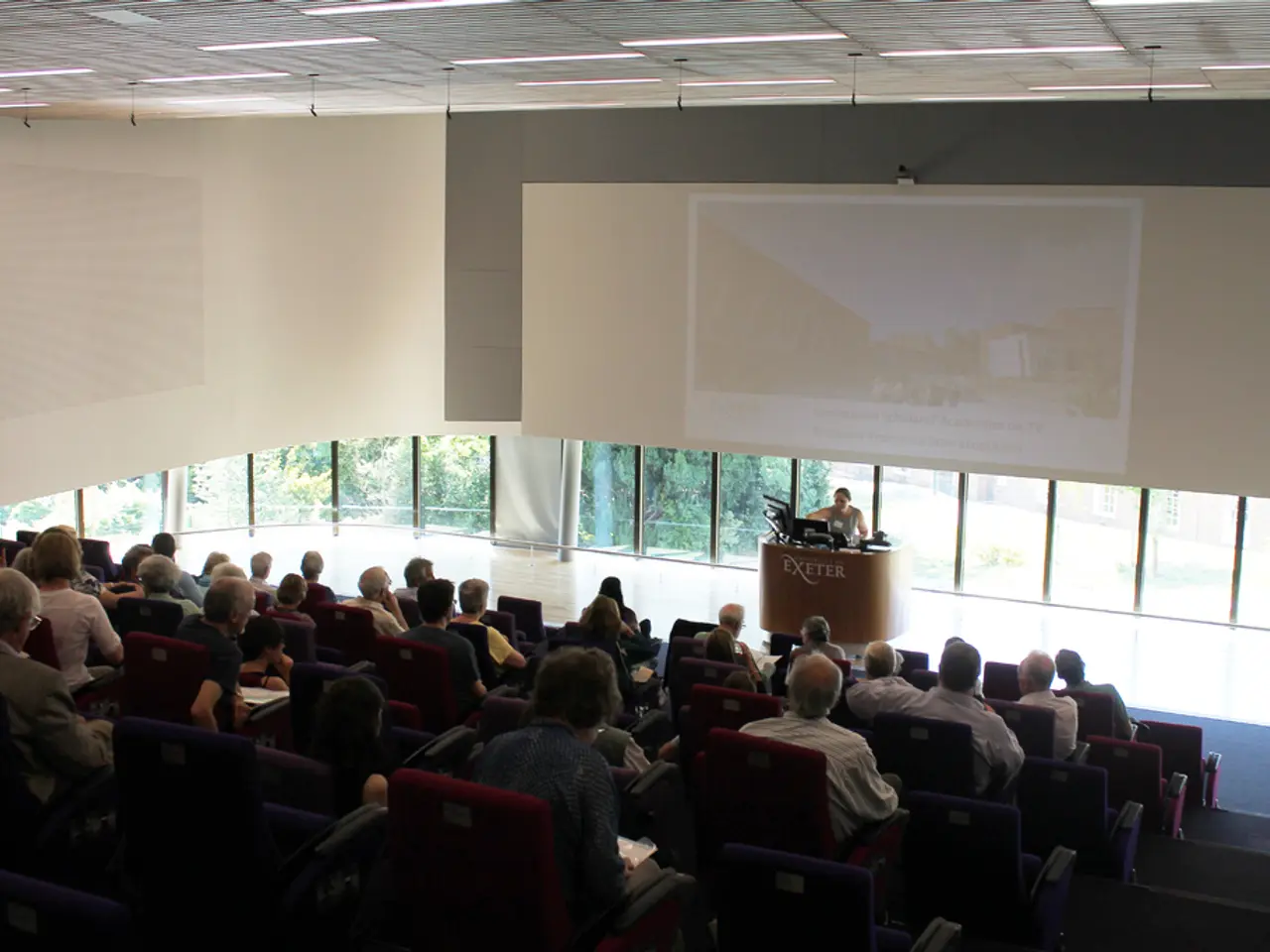Preparing for a Research Presentation: A Step-by-Step Guide
Xander Jenkin, Natural Sciences Correspondent
For undergraduates preparing to present their research at academic conferences like the Freshmen Research Conference or Princeton Research Day, it's essential to approach the task with confidence and thorough preparation. Here are some tips to help you present like a pro.
Thorough Research and Content Mastery
Gain a deep understanding of your research topic, methods, and key findings. This foundation will allow you to answer questions confidently and engage your audience effectively.
Clear Structure and Organisation
Organise your presentation with a clear structure: an introduction, main body (overview of main points, methods, key findings, contributions, implications), and a concise conclusion. This structure ensures your presentation flows smoothly and is easy to follow.
Effective Visual Aids
Design slides or posters that highlight essential points visually, with limited text and meaningful graphics. Visuals aid audience comprehension and retention, making your presentation more engaging and memorable.
Practice Makes Perfect
Practice public speaking skills to engage the audience effectively. Balance technical depth with clarity for diverse academic listeners, maintaining a confident and approachable demeanour.
Handling Unexpected Questions
If faced with an unexpected question, pause and acknowledge the question thoughtfully. Admit if you don't know the answer and try to reason out the thought process aloud to think about what the answer might be. If uncertain, provide related knowledge, promise to follow up, or invite others to contribute. Ask for clarification to ensure you understand the question correctly, which also buys time to formulate a response.
Gathering Feedback
Encourage questions at the end or during the presentation to clarify complex points. Use polling tools or interactive elements if the format allows, especially in online settings. Reflect on feedback to improve your presentation skills and research communication in the future.
The Importance of Feedback
Showing your work to others, including your adviser and department members, can help you take note of common questions that may arise during the presentation. Having multiple sets of eyes evaluate the presentation ensures that it flows nicely and is understandable.
Don't Be Afraid to Ask Questions
Remember, there is no such thing as a silly question. If you have questions about the work, ask your adviser or other department members.
Preparation is Key
Prepare for questions that may be asked during the presentation. If content needs to be cut to meet a presentation time limit, it can be added as "extra slides" after the conclusion.
The main goal of the presentation is to show what you have done. By following these tips, you can effectively prepare for and present your research to an academic department, fostering constructive dialogue and improving your research communication skills.
[1] The Princeton Guide to Public Speaking [2] Princeton Research Day [3] Freshmen Research Conference [4] Feedback and Improvement in Academic Presentations [5] Effective Online Presentation Strategies
- Engage in education and self-development by reading 'The Princeton Guide to Public Speaking' to hone your presentation skills and learn strategies for effective communication.
- Furthermore, consider how career development can benefit from participating in academic conferences like the Freshmen Research Conference or Princeton Research Day, as it provides opportunities to showcase your research and learn from others through feedback and constructive dialogue.




